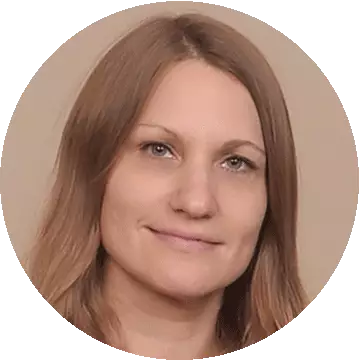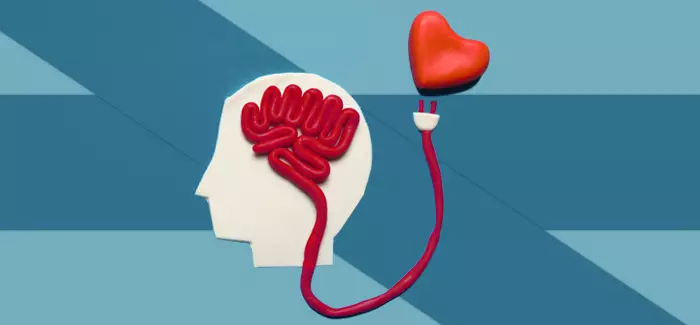Articles > Counseling > How to become a mental health counselor
How to become a mental health counselor

Written by Camilla Andersson

Reviewed by Christina Neider, EdD, Dean of the College of Social and Behavioral Sciences

Does a career as a mental health counselor interest you? Learn more about mental health counseling, what a mental health counselor does and how to become one.
What is mental health counseling?
Mental health counselors help clients manage their mental health disorders and other mental health concerns. Many counselors focus on providing talk therapy to clients in a one-on-one or group setting, or both. They are similar to behavioral health specialists, psychotherapists, social workers and addiction counselors, all who counsel clients but with a few differences between the professions.
Therapist is an umbrella term for professionals who help individuals manage and treat a variety of emotional, mental and behavioral issues. A mental health therapist may offer talk therapy with individuals in an office setting. A marriage and family therapist may offer similar therapy to couples and families experiencing disruptions in their lives.
In this article, we’ll use the word counselor to refer to:
- A licensed mental health counselor (LMHC)
- A licensed professional counselor (LPC)
- Similar titles in different states (Delaware, for example, issues licenses for Licensed Professional Counselor of Mental Health)
These professions share similar career paths in terms of education and job responsibilities, but states differ in how they address titles and licensing.
Why is mental health counseling important?
In 2024, 23% of American adults experienced a mental illness, according to Mental Health America . Equally notable is that, for every 340 people, there is one mental health provider.
People often turn to counseling to process their thoughts and feelings about significant life events as well as physical, emotional and psychological stressors. Others may choose to go for general mental health management. One study revealed that about 73% of Americans have had mental health therapy at some point in their lives.
Counselors are trained to teach people to recognize negative thinking patterns, understand the reasons behind their behavior and change their thought patterns and behaviors. They use these skills to help clients with:
- General concerns, such as sadness or stress management
- Specific mental health disorders, including depression, anxiety or addiction
- Challenges in specific areas of life, such as a relationships, grief, divorce or parenting
Skills required in mental health counseling
Counselors have strong listening, communication and interpersonal skills. It’s also important for mental health professionals to be compassionate and nonjudgmental so that clients feel comfortable.
Counselors must learn the art of building a therapeutic relationship to help clients be open and trusting in their sessions. Clients learn from their counselor how to assess and analyze their thoughts, feelings and behaviors, allowing them to make better life choices and improve their overall health and wellness.
Counselors also need to be responsible and adhere to ethical practices to fulfill their responsibilities to their clients while maintaining appropriate boundaries.
How to become a licensed counselor
To become a licensed clinical mental health counselor or a licensed marriage and family therapist
, you’ll need to meet the licensing requirements in the state where you’ll be practicing and may need to pass a background check depending on federal or state requirements. You can find specific requirements for different states on the website of the National Board for Certified Counselors (NBCC
). Typically, you’ll need:
- A master’s degree in counseling
or a related field
- Supervised clinical experience
- To pass an exam, typically either the National Counselor Examination or the National Clinical Mental Health Counseling Examination, both offered by the NBCC
- To pass a background check
In some states, becoming a counselor involves a two-step licensing process in which you would first apply for a license as a counselor in training. This is true in California, for example, where you would start as an Associate Professional Clinical Counselor (APCC), and Delaware, where you would start as a Licensed Associate Counselor of Mental Health (LACMH).
As a counselor in training, you must be supervised by a licensed therapist as you gain clinical hours in preparation for licensure. Each state sets the necessary hours needed.
States typically require counselors to complete certain continuing education to maintain their licenses. Specific requirements vary so make sure to review the details relevant to your state. Continuing education can also help you gain specialization in a field of counseling.
Career opportunities and job outlook
As of May 2023, substance abuse, behavioral disorder and mental health counselors earned between $36,700 and $89,920, with a median wage of $53,710, according to the U.S. Bureau of Labor Statistics (BLS).
BLS projects employment for these positions to grow by 19% from 2023 to 2033 . This is about 48,900 openings across these roles each year.
Most new counselors starting in the profession work in community mental health centers, hospitals or in-patient centers, outpatient behavioral health clinics or large group practices. New counselors are required to work under supervision for at least two years. Counselors who choose private practice have a variety of options in how to structure their practices, such as a group practice, individual practice or shared space arrangement.
Salary ranges are not specific to students or graduates of University of Phoenix. Actual outcomes vary based on multiple factors, including prior work experience, geographic location and other factors specific to the individual. University of Phoenix does not guarantee employment, salary level or career advancement. BLS data is geographically based. Information for a specific state/city can be researched on the BLS website.
BLS Occupational Employment Projections, 2023-2033 is published by the U.S. Bureau of Labor Statistics. This data reflects BLS’ projections of national (not local) conditions. These data points are not specific to University of Phoenix students or graduates.
Steps to becoming a licensed counselor
The first step to becoming a counselor is to choose an educational program. Start by determining which state you want to practice in and research the requirements to obtain a license in that state.
Typically, working as a mental health counselor requires a master’s degree . However, having a bachelor’s degree is necessary to apply for master’s programs. Common undergraduate fields of study include psychology
, public policy and social services
, and social science
.
During your master’s program in counseling, it’s also important to obtain internship hours so you can gain experience in counseling while working under the supervision of a licensed counselor. Such experience can prepare you for the clinical hours that are typically required after graduation, when you’ll also work under supervision.
After you meet other licensing requirements, and potentially a background check, you can apply to take the National Counselor Examination or the National Clinical Mental Health Counseling Examination. To help prepare, consider purchasing study guides or practice questions. Several companies sell these; a good starting point is to review the ones listed on the NBCC website (NBCC does not specifically sell or endorse any).
Specializations in mental health counseling
Licensed Professional Counselor (LPC)
An LPC is similar to an LMHC, but the title is used in different states. An LPC typically counsels clients individually or in groups and holds a master’s degree in counseling. These professionals may choose to start their own business or take on a leadership role.
Clinician
A clinician, or clinical therapist, is a term used for a healthcare professional who treats patients directly. In the field of mental health, a clinician could be a therapist, psychologist, psychotherapist, counselor or other professional who is directly involved with patients, as opposed to someone who works, for example, in research or administration.
Family therapist
A family therapist is a licensed professional who works with couples and families to resolve conflicts and improve relationship dynamics between individuals.
Mental health counselor
This is an umbrella term for LMHCs, LPCs and similar professions.
Ethics and professional standards in mental health counseling
Counselors can play an important role in their patients’ lives, helping them to overcome challenges and achieve psychological and emotional stability. Because of the significant influence they can exert, and the trust-based relationships they necessarily develop with patients, strict ethical and legal boundaries exist.
These boundaries are specified in federal and state laws, the code of ethics for the profession, and requirements and recommendations by professional associations . Counselors usually disclose essential ethical standards and legal responsibilities in the intake forms their patients sign.
Some responsibilities include:
- Reporting someone who may be an immediate danger to themselves; e.g., they expressed an intention to harm themselves or others
- Reporting someone who may be actively harming a vulnerable person who cannot protect themselves, such as a child or disabled individual
- Maintaining confidentiality, as specified in HIPAA, the applicable counseling association, and state laws
- Maintaining professional boundaries, including keeping set start and end times for sessions, avoiding or limiting disclosure of personal information and not engaging in friendly or romantic relationships with clients
- Setting and evaluating goals for counseling on a regular basis
Sometimes, counselors may face dilemmas when different ethical or legal standards collide. In those cases, they can reach out to their supervisor, an attorney or a professional association, such as the American Counseling Association, for guidance.
Learn more about how to become a mental health counselor
Do you want to become a mental health counselor but need the flexibility of attending classes online? University of Phoenix may be able to help. Its online master’s programs facilitate in-person residency, clinical skills aligned to courses, student support, and diverse practitioner faculty. Learn more here:
- Online master’s in counseling degrees
- Master of Science in Counseling/Clinical Mental Health Counseling
For more advice on how to choose a career and workplace, watch the UOPX podcast How Tomorrow Works .
To find out more about University of Phoenix, get in touch with an enrollment representative today.
Read more articles like this:

ABOUT THE AUTHOR
Camilla Andersson is a writer with a degree in journalism. She has written and edited content for trade magazines, blogs, white papers and newsletters. Camilla lives in Los Angeles and is a graduate of San Francisco State University. She grew up in Sweden, where she published her first work, an op-ed in the newspaper Aftonbladet, at the age of 15.

ABOUT THE REVIEWER
Christina Neider is the dean of the University of Phoenix College of Social and Behavioral Sciences. Neider’s career spans more than 30 years in academia, healthcare and the U.S. Air Force. She has held several academic leadership roles at University of Phoenix, and she is the Vice President of membership for the Arizona Chapter of the Healthcare Information and Management Systems Society.
This article has been vetted by University of Phoenix's editorial advisory committee.
Read more about our editorial process.


